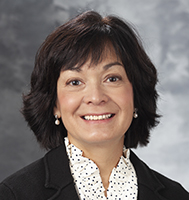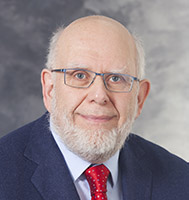The University of Wisconsin Center for Rare Diseases has been selected as a National Organization for Rare Disorders (NORD) Rare Disease Center of Excellence.
The UW Center for Rare Diseases, a new joint collaboration between the Division of Genetics & Metabolism in the Department of Pediatrics and the UW Center for Human Genomics and Precision Medicine, joins a highly select group of 31 sites across the country.

The UW Center for Rare Diseases is co-led by Drs. Kim Keppler-Noreuil, professor of pediatrics and chief, Division of Genetics & Metabolism, and Stephen Meyn, professor of pediatrics and director, UW Center for Human Genomics and Precision Medicine, both of the UW School of Medicine and Public Health.
The Centers of Excellence program was created by NORD with goals of fostering knowledge sharing between experts across the country, connecting patients to appropriate specialists regardless of disease or geography and accelerating progress in rare disease diagnosis, treatment and research.
The UW Center for Rare Diseases will provide comprehensive medical genetics and multispecialty services as well as state-of-the-art diagnostics and clinical trials for a broad spectrum of rare disease patients in Wisconsin, Northern Illinois and the rest of the country.
“We are excited to join the Center of Excellence network, and together with the National Organization for Rare Disorders, we are committed to providing comprehensive patient-centered care to rare disease patients,” Keppler-Noreuil said. “This is an exciting step forward to advance medical breakthroughs, improve care planning and support patients, families and physicians.”
The mission of the UW Center for Rare Diseases aligns with NORD, and this designation helps advance the center’s progress toward its goals, according to Meyn.

“The ongoing revolution in the diagnosis, management and treatment of rare diseases is being driven not only by new genomic technologies but by heightened collaborations between clinicians and scientists at different institutions across the country,” he said. “Joining the NORD Center of Excellence Network will enhance our ability to share our knowledge and work with our colleagues in order to improve the care of rare disease patients.”
People living with rare diseases frequently face many challenges in finding a diagnosis and quality clinical care. In establishing the Centers of Excellence program, NORD has designated clinical centers across the U.S. that provide exceptional rare disease care and have demonstrated a deep commitment to serving rare disease patients and their families using a holistic, state of the art approach, according to Dr. Ed Neilan, chief scientific and medical officer, NORD.
Any disease that affects fewer than 200,000 people in the U.S. is considered rare, according to the National Institutes of Health. Because there are more than 7,000 rare diseases, 25 to 30 million Americans are estimated to be currently living with rare diseases, including over 450,000 Wisconsinites. More than 90% of rare diseases lack a treatment approved by the Food and Drug Administration. crest
“Right now, far too many rare diseases are without an established standard of care. The Centers of Excellence program will help set that standard – for patients, clinicians and medical centers alike,” Neilan said.“We are proud to announce the UW Center for Rare Diseases as a NORD Rare Disease Center of Excellence and look forward to their many further contributions as we collectively seek to improve health equity, care and research to support all individuals with rare diseases.”
To learn more about the NORD Rare Disease Centers of Excellence program and the full list of centers, visit the program website.